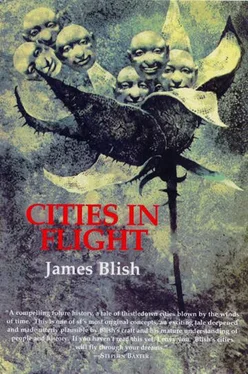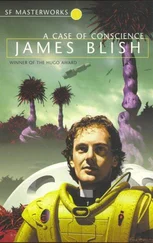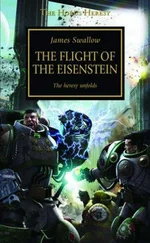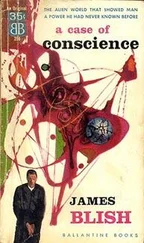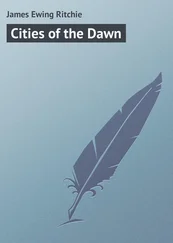James Blish - Cities in Flight
Здесь есть возможность читать онлайн «James Blish - Cities in Flight» весь текст электронной книги совершенно бесплатно (целиком полную версию без сокращений). В некоторых случаях можно слушать аудио, скачать через торрент в формате fb2 и присутствует краткое содержание. Жанр: Фантастика и фэнтези, на английском языке. Описание произведения, (предисловие) а так же отзывы посетителей доступны на портале библиотеки ЛибКат.
- Название:Cities in Flight
- Автор:
- Жанр:
- Год:неизвестен
- ISBN:нет данных
- Рейтинг книги:4 / 5. Голосов: 1
-
Избранное:Добавить в избранное
- Отзывы:
-
Ваша оценка:
- 80
- 1
- 2
- 3
- 4
- 5
Cities in Flight: краткое содержание, описание и аннотация
Предлагаем к чтению аннотацию, описание, краткое содержание или предисловие (зависит от того, что написал сам автор книги «Cities in Flight»). Если вы не нашли необходимую информацию о книге — напишите в комментариях, мы постараемся отыскать её.
Cities in Flight — читать онлайн бесплатно полную книгу (весь текст) целиком
Ниже представлен текст книги, разбитый по страницам. Система сохранения места последней прочитанной страницы, позволяет с удобством читать онлайн бесплатно книгу «Cities in Flight», без необходимости каждый раз заново искать на чём Вы остановились. Поставьте закладку, и сможете в любой момент перейти на страницу, на которой закончили чтение.
Интервал:
Закладка:
“About there was when Pfitzner got into the picture. The NHS, the National Health Service, got alarmed enough about the rising incidence-curves to call the first really major world congress on the degenerative diseases. The U.S. paid part of the bill because the armed services were getting nervous about the rising rate of draft rejections.”
“I heard some talk about that part of it,” Paige said. “It started right in my own service. A spaceman only has about ten years of active life; after that he’s given garrison duty somewhere—so we like to catch ’em young. And even then we were turning back a huge proportion of young volunteers for ‘diseases of old age’—incipient circulatory disease in most cases. The kids were shocked; most of them had never suspected any such thing, they felt as healthy as bulls, and in the usual sense I suppose they were—but not for space flight.”
“Then you saw one of the key factors very early,” Anne said. “But it’s no longer a special problem of the Space Service alone. It’s old stuff to all the armed services’ medical departments now; at the time the NHS stepped in, the overall draft rejection rate for ‘diseases of old age’ was about 10 per cent for men in their early twenties. Anyhow, the result of the congress was that the U.S. Department of Health, Welfare and Security somehow got a billion-dollar appropriation for a real mass attack on the degenerative diseases. In case you drop zeros as easily as I do, that was about half what had been spent to produce the first atomic bomb. Since then, the appropriation has been added to once, and it’s due for renewal again now.
“Pfitzner holds the major contract on that project, and we’re well enough staffed and equipped to handle it so that we’ve had to do very little sub-contracting. We simply share the appropriation with three other producers of biologicals, two of whom are producers only and so have no hand in the research; the third firm has done as much research as we have, but we know—because this is supposed to be a co-ordinated effort with sharing of knowledge among the contractors—that they’re far gone down another blind alley. We would have told them so, but after one look at what we’d found, the government decided that the fewer people who know about it, the better. We didn’t mind; after all, we’re in business to make a profit, too. But that’s one reason why you saw so many government people on our necks this afternoon.”
The girl broke off abruptly and delved into her pocketbook, producing a flat compact which she opened and inspected intently. Since she wore almost no make-up, it was hard to imagine the reason for the sudden examination; but after a brief, odd smile at one corner of her mouth, she tucked the compact away again.
“The other reason,” she said, “is even simpler, now that you have the background. We’ve just found what we think may be a major key to the whole problem.”
“Wow,” Paige said, inelegantly but affetuoso.
“Or zowie, or biff-bam-krunk,” Anne agreed calmly, “or maybe God-help-us-every-one. But so far the thing’s held up. It’s passed every test. If it keeps up that performance, Pfitzner will get the whole of the new appropriation—and if it doesn’t, there may not be any appropriation at all, not only for Pfitzner, but for the other firms that have been helping on the project.
“The whole question of whether or not we lick the degenerative diseases hangs on those two things: the validity of the solution we’ve found and the money. If one goes, the other goes. And we’ll have to tell Horsefield and MacHinery and the others what we’ve found some time this month, because the old appropriation lapses after that.”
The girl leaned back and seemed to notice for the first time that she had finished her dinner. “And that,” she said, pushing regretfully at the sprig of parsley with her fork, “isn’t exactly public knowledge yet! I think I’d better shut up.”
“Thank you,” Paige said gravely. “It’s obviously more than I deserve to know.”
“Well,” Anne said, “you can tell me something, if you will. It’s about this Bridge that’s being built on Jupiter. Is it worth all the money that they’re pouring into it? Nobody seems to be able to explain what it’s good for. And now there’s talk that another Bridge’ll be started on Saturn, when this one’s finished!”
“You needn’t worry,” Paige said. “Understand, I’ve no connection with the Bridge, though I do know some people on the Bridge gang, so I haven’t any inside information. I do have some public knowledge, just like yours—meaning knowledge that anyone can have, if he has the training to know where to look for it. As I understand it, the Bridge on Jupiter is a research project, designed to answer some questions—just what questions, nobody’s bothered to tell me, and I’ve been careful not to ask; you can see Francis X. MacHinery’s face in the constellations if you look carefully enough. But this much I know: the conditions of the research demand the use of the largest planet in the system. That’s Jupiter, so it would be senseless to build another Bridge on a smaller planet, like Saturn. The Bridge gang will keep the present structure going until they’ve found out what they want to know. Then the project will almost surely be discontinued—not because the Bridge is ‘finished,’ but because it will have served its purpose.”
“I suppose I’m showing my ignorance,” Anne said, “but it sounds idiotic to me. All those millions and millions of dollars—that we could be saving lives with!”
“If the choice were mine,” Paige agreed, “I’d award the money to you, not to Charity Dillon and his crew. But then, I know almost as little about the Bridge as you do, so perhaps it’s just as well that I’m not allowed to route the check. Is it my turn to ask a question? I still have a small one.”
“Your witness,” Anne said, smiling her altogether lovely smile.
“This afternoon, while I was in the labs, I twice heard a baby crying—and I think it was actually two different babies. I asked your Mr. Gunn about it, and he told me an obvious fairy story.” He paused. Anne’s eyes had already begun to glitter.
“You’re on dangerous ground, Colonel Russell,” she said.
“I can tell. But I mean to ask my question anyhow. When I pulled my absurd vivisection threat on you later, I was out-and-out flabbergasted that it worked, but it set me to thinking. Can you explain —and if so, would you?”
Anne got out her compact again and seemed to consult it warily. At last she said: “I suppose I’ve forgiven you, more or less. Anyhow, I’ll answer. It’s very simple: the babies are being used as experimental animals. We have a pipeline to a local foundling home. It’s all only technically legal, and had you actually brought charges of human vivisection against us, you probably could have made them stick.”
His coffee cup clattered into its saucer. “Great God, Anne. Isn’t it dangerous to make such a joke these days—especially with a man you’ve known only half a day? Or are you trying to startle me into admitting I’m a stoolie?”
“I’m not joking and I don’t think you’re a stoolie,” she said calmly. “What I said was perfectly true—oh, I souped up the way I put it just a little, maybe because I haven’t entirely forgiven you for that bit of successful blackmail, and I wanted to see you jump. And for other reasons. But it’s true.”
“But Anne—why?”
“Look, Paige,” she said. “It was fifty years ago that we found that if we added minute amounts of certain antibiotics, really just traces, to animal feeds, the addition brought the critters to market months ahead of normally-fed animals. For that matter, it even provokes growth spurts in plants under special conditions; and it works for poultry, baby pigs, calves, mink cubs, a whole spectrum of animals. It was logical to suspect that it might work in newborn humans too.”
Читать дальшеИнтервал:
Закладка:
Похожие книги на «Cities in Flight»
Представляем Вашему вниманию похожие книги на «Cities in Flight» списком для выбора. Мы отобрали схожую по названию и смыслу литературу в надежде предоставить читателям больше вариантов отыскать новые, интересные, ещё непрочитанные произведения.
Обсуждение, отзывы о книге «Cities in Flight» и просто собственные мнения читателей. Оставьте ваши комментарии, напишите, что Вы думаете о произведении, его смысле или главных героях. Укажите что конкретно понравилось, а что нет, и почему Вы так считаете.
